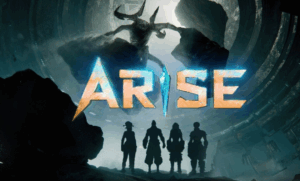China Unveils Blockchain Tech to Combat Quantum Cyberattacks

Chinese Scientists Develop Quantum-Resistant blockchain Storage System
Innovative blockchain Technology to Combat Quantum Threats
Chinese researchers have announced the creation of a groundbreaking blockchain storage system designed to withstand potential threats posed by quantum computing. This advancement is crucial, as the rise of quantum computers could render existing encryption techniques ineffective.
The new system, referred to as EQAS (Efficient Quantum-resistant Authentication Storage), establishes a novel framework aimed at protecting blockchain infrastructures from the formidable computational capabilities of future quantum machines.
A Shift Towards Post-Quantum Cryptography
The development, highlighted by the South China Morning Post, was published in the Journal of Software in early June. EQAS is built on post-quantum cryptographic principles, marking a significant departure from traditional encryption methods that depend on complex mathematical challenges.
Current blockchain systems often rely on cryptographic techniques vulnerable to quantum algorithms, which can solve these problems in mere seconds. Wu Tong, an associate professor at the University of Science and Technology Beijing and one of the study’s leaders, emphasized the urgency of transitioning away from these outdated methods.
Enhanced Security with SPHINCS
At the heart of EQAS lies SPHINCS, a hash-based digital signature approach introduced in 2015. Unlike conventional signatures that depend on number theory, SPHINCS utilizes hash functions, which are believed to be more robust against quantum attacks. This modification not only enhances security but also simplifies the management of device keys, a critical factor in decentralized networks where numerous nodes independently verify transactions.
EQAS also features a unique architecture that separates data storage from the verification process. It employs a dynamic tree structure for generating proofs and a supertree framework for their validation, resulting in a more scalable and efficient system that alleviates server strain.
Performance Advantages and Future Implications
In performance evaluations, EQAS outperformed existing systems significantly. Tasks related to authentication and data storage were completed in approximately 40 seconds, a stark contrast to the average of 180 seconds needed for Ethereum blockchain confirmations, which currently rely on a sequence of 12 blocks.
Wu pointed out that the dependence of current blockchains on classical encryption methods is becoming increasingly untenable in light of quantum advancements. She stressed the need for a comprehensive reevaluation of how decentralized systems are secured for the future.
While quantum computers capable of breaching blockchain encryption are not yet commonplace, experts agree that the threat is imminent. Wang Chao, a quantum computing specialist at Shanghai University, likened the situation to knowing that a wooden gate would burn in a fire; proactive measures are essential.
The Future of Digital Security
As blockchain technology becomes integral to global finance, logistics, and identity verification, frameworks like EQAS may transition from theoretical concepts to essential components of digital infrastructure.
The EQAS framework represents a significant Chinese initiative to integrate blockchain technology with post-quantum cryptography. If successfully implemented in real-world applications, it could position China at the forefront of securing future digital networks against emerging cyber threats.







